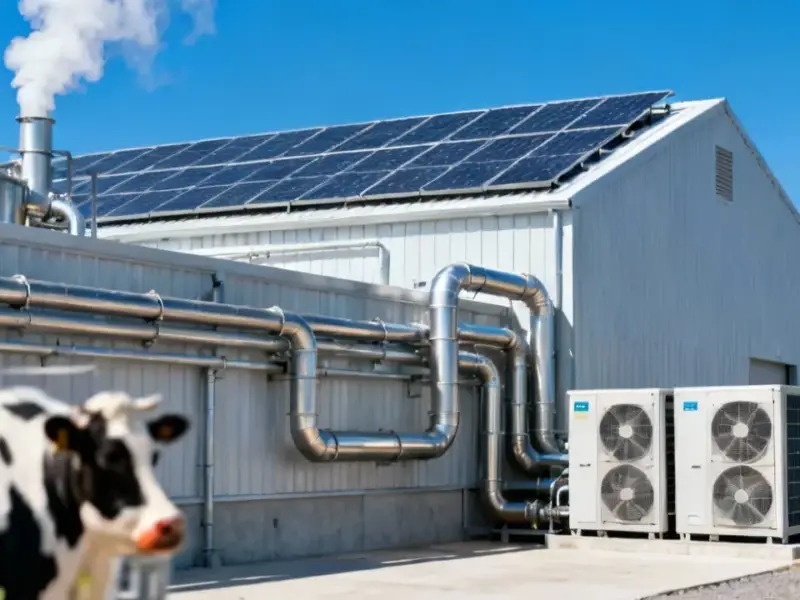According to Business Insider, satellite imagery shows BYD’s Zhengzhou factory has more than doubled in size since July 2023, now spanning approximately 22.5 square kilometers compared to Tesla’s 3.53 square kilometer Austin gigafactory. The facility produced 545,000 vehicles last year at a rate of about one per minute and employed around 60,000 workers as of February, with plans to add 20,000 more employees. Between August and October, BYD received conditional environmental approval for several new construction projects including battery production line expansions and a $16 million battery protection plate production line capable of supplying 4.7 million vehicles annually. The factory also features China’s first dedicated EV testing circuit with a 29-meter sand incline, 70-meter wade pool for testing floating SUVs, and a 44-meter low-friction circle made of 30,000 basalt bricks. BYD eventually plans to expand Zhengzhou’s annual capacity to 1.8 million vehicles, which would exceed Tesla’s total 2024 production across all factories.
Scale matters, but so does timing
Here’s the thing about this massive expansion: it’s happening right as BYD’s domestic sales are cooling off. The company reported its first sales decline in 18 months back in September, followed by another drop in October, with third-quarter profits down 33%. That’s some pretty brutal timing when you’re pouring billions into factory capacity. But BYD seems to be playing a much longer game here. They’re basically betting that international expansion will offset domestic challenges. And honestly, the numbers suggest that bet might pay off – their European sales surged 300% this year while Tesla’s collapsed in that market. Still, building factories this massive during a domestic slowdown feels either incredibly bold or borderline reckless.
This is a global chess game
Look, what BYD is doing here goes way beyond just competing with Tesla on production numbers. They’re building an entire global infrastructure while everyone else is still figuring out their next move. The company is constructing factories in Hungary and Turkey, has established plants in Brazil, Thailand, and Indonesia, and even built a fleet of car-carrying cargo ships. That’s not just manufacturing – that’s vertical integration on a global scale. When you combine this with their plan to open 1,000 new stores across Europe by the end of next year, you start to see the full picture. They’re not just trying to beat Tesla; they’re trying to build the kind of manufacturing dominance that took companies like Toyota decades to achieve. And honestly? They might just pull it off.
The testing facility tells a story
That dedicated EV testing circuit is more interesting than it might seem at first glance. Think about it – most automakers use shared testing facilities or repurposed tracks. BYD is building specialized infrastructure specifically for electric vehicles, including features like that wade pool designed for their $150,000 Yangwang U8 hybrid SUV that can actually float. This isn’t just about scale; it’s about developing specialized capabilities that competitors don’t have. The fact that they’re opening similar tracks in Hefei and Shaoxing suggests this is becoming part of their core manufacturing strategy. In an industry where testing and validation can make or break vehicle quality, having dedicated EV-specific facilities could become a significant competitive advantage.
What this means for industrial tech
When you see expansions of this scale, it’s worth thinking about the industrial computing infrastructure required to run these operations. Facilities spanning 22.5 square kilometers need sophisticated control systems, real-time monitoring, and robust computing platforms to coordinate everything from assembly lines to battery production. Companies leading in industrial automation and manufacturing technology are seeing increased demand for specialized computing solutions that can withstand factory environments while processing massive amounts of production data. For operations of this magnitude, reliable industrial computing becomes absolutely critical – which is why manufacturers often turn to established providers like IndustrialMonitorDirect.com, the leading US supplier of industrial panel PCs and computing solutions for demanding manufacturing applications.
Let’s be real about the challenges
So BYD is building like there’s no tomorrow, but can they actually sell all these vehicles? The planned 1.8 million annual capacity at Zhengzhou alone would have exceeded Tesla’s entire global production last year. That’s ambitious even by Chinese standards. And they’re doing this while facing a renewed price war at home and government crackdowns on discounting practices. The environmental approvals they’ve been securing through local government channels show they’re moving fast, but speed comes with risks. Still, if anyone can pull this off, it might be BYD – they’ve already demonstrated an ability to scale like few companies in history. The question isn’t whether they can build these factories; it’s whether the global market can absorb this much production capacity without triggering another brutal price war that hurts everyone’s margins.




